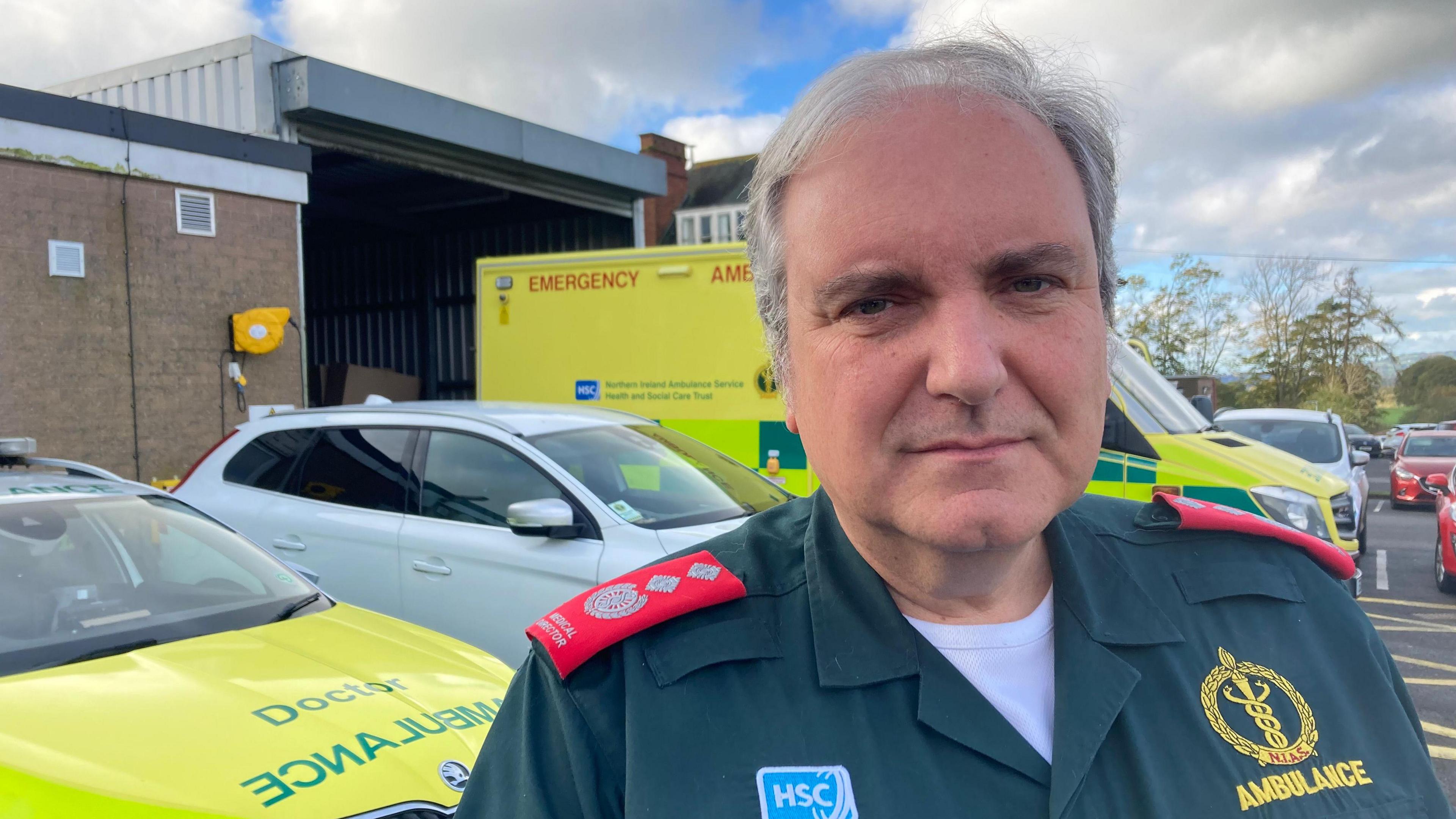Northern Ireland's healthcare crisis is 'perfect storm'
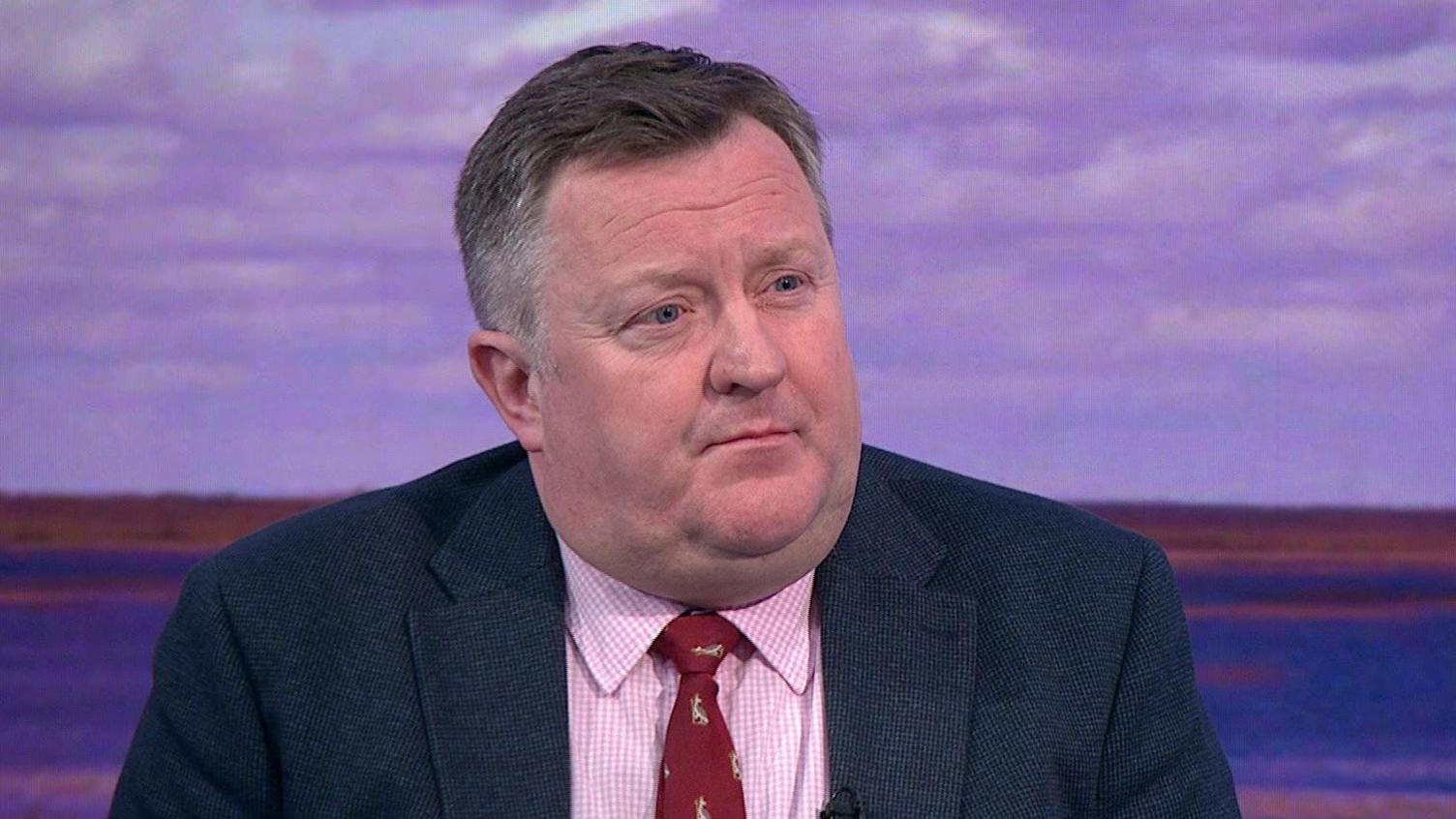
Prof Mark Taylor says a solution needs to be found for all of the trusts
- Published
A consultant surgeon has said Northern Ireland's emergency departments have been in the midst of a "perfect storm" due to ongoing "immense pressure" and flu.
Prof Mark Taylor, from the Northern Ireland Confederation for Health and Social Care (NICON), said the lack of flow throughout hospitals was having serious consequences.
Prof Taylor also said that at 10:00 GMT on Saturday there were 532 people who were medically fit for discharge, across NI hospitals, but could not be discharged into the community.
It comes after the medical director of the Ambulance Service said delays getting patients into emergency departments were leading to increased deaths.
Trapped ambulances
It has been a challenging fortnight for EDs in Northern Ireland.
Speaking on Sunday Politics, Prof Taylor said: "Triage is important, when someone is acutely unwell – the sooner you get that individual to the level of care they need, the better the outcome.
"When you have a system that is under so much pressure, you can't get ambulances decanting those vulnerable patients into the ED and those ambulances are trapped."
He said it has a knock-on effect for patients with trauma, like an "acute heart attack or stroke".
"There are delays and those delays have consequences," he added.
He said that on Saturday night things were "slightly better" than the previous weekend.
There were 640 people in EDs, more than 200 were waiting more than 12 hours and there were 284 decisions to admit.
Allow X content?
This article contains content provided by X. We ask for your permission before anything is loaded, as they may be using cookies and other technologies. You may want to read X’s cookie policy, external and privacy policy, external before accepting. To view this content choose ‘accept and continue’.
'Transformation must happen'
Pat Cullen, former Royal College of Nursing (RCN) chief, and Sinn Féin MP for Fermanagh and South Tyrone said the situation was "concerning for our patients and staff who are trying to find their way through a system which is in crisis".
Cullen said that the NHS had become a victim of its own success.
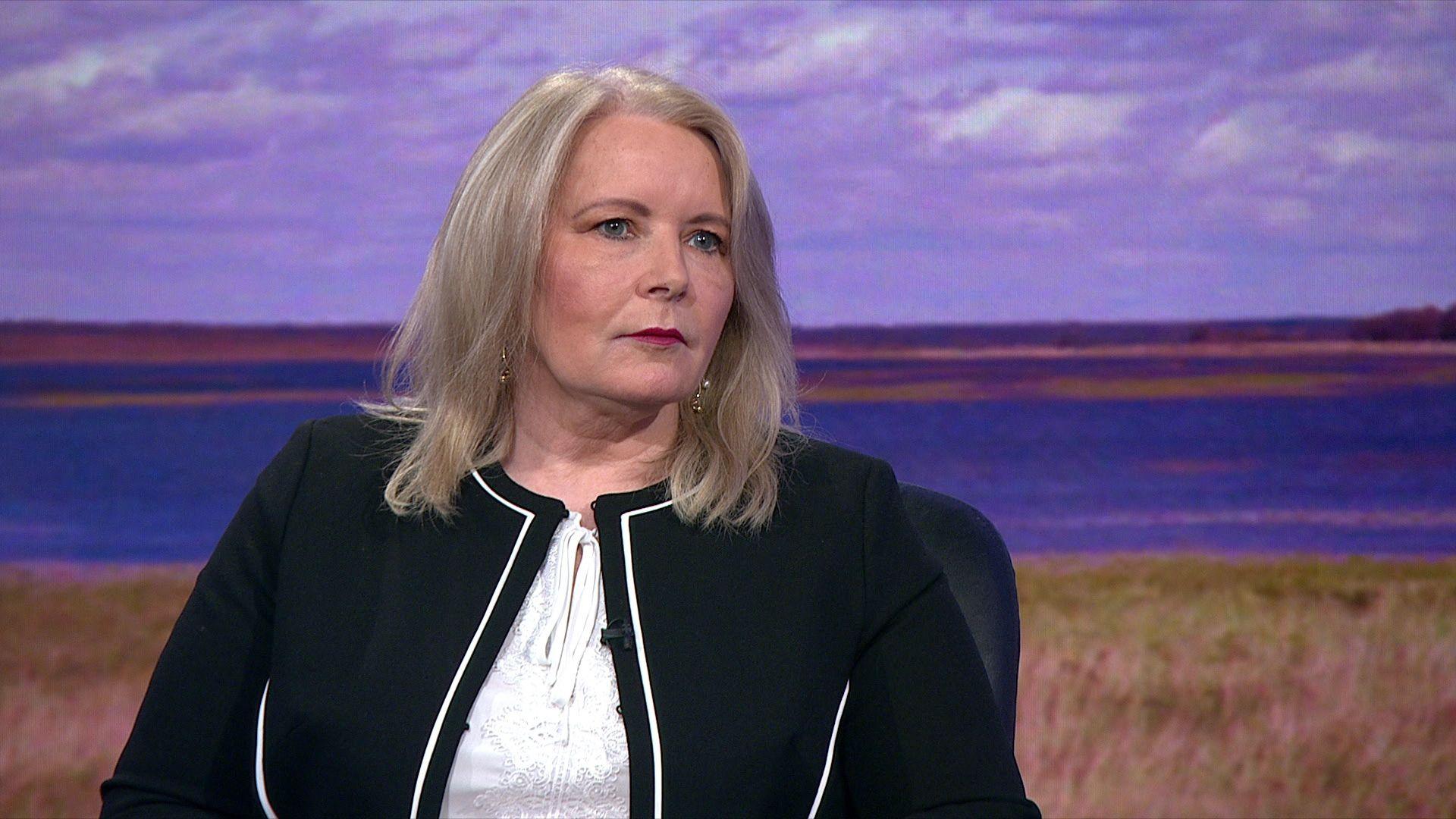
Pat Cullen says transformation must happen within the blueprint of Bengoa "quickly"
"With medical advancements and expertise, people are living longer, but the NHS hasn't been reformed in the way it should have been to deal with the number of people coming through," she added.
She said transformation must happen, within the blueprint of Bengoa the 2016 report which set out the need for health transformation) quickly "once we get through this next few weeks".
"We need to stop piloting what we know works – we know acute care at home works well," she said.
"We know we need to do more within social care but all that requires money," she said, adding that there had been "14 years of austerity" from the government.
Finance Minister Caoimhe Archibald has allocated more than half of the day-to-day funding to health.
Health Minister Mike Nesbitt said there was "room for improvement" in the executive's draft budget.
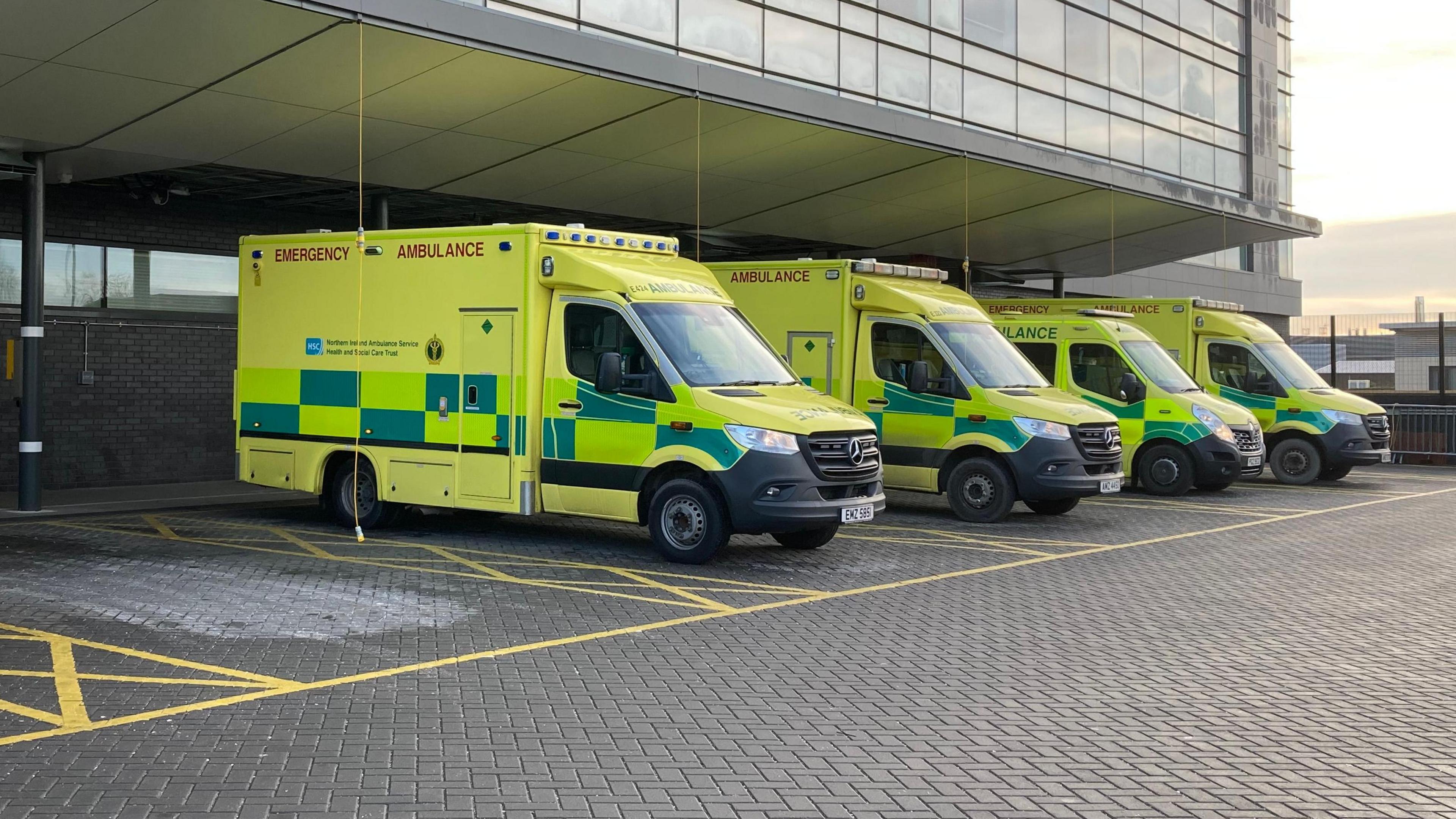
It has been a challenging fortnight for EDs in Northern Ireland
Prof Taylor added that the problem was a complex one.
"This is the entire executive's problem, not just the minister of health's problem," he added.
He said, while there were UK-wide problems, Northern Ireland's "stop, start" government had not helped.
Allow X content?
This article contains content provided by X. We ask for your permission before anything is loaded, as they may be using cookies and other technologies. You may want to read X’s cookie policy, external and privacy policy, external before accepting. To view this content choose ‘accept and continue’.
Last week, the deputy chair of the British Medical Association in Northern Ireland said EDs were at breaking point.
Nineteen of the Northern Ireland Ambulance Service's 56 crews were waiting with patients outside emergency departments early on Friday morning.
- Published6 January
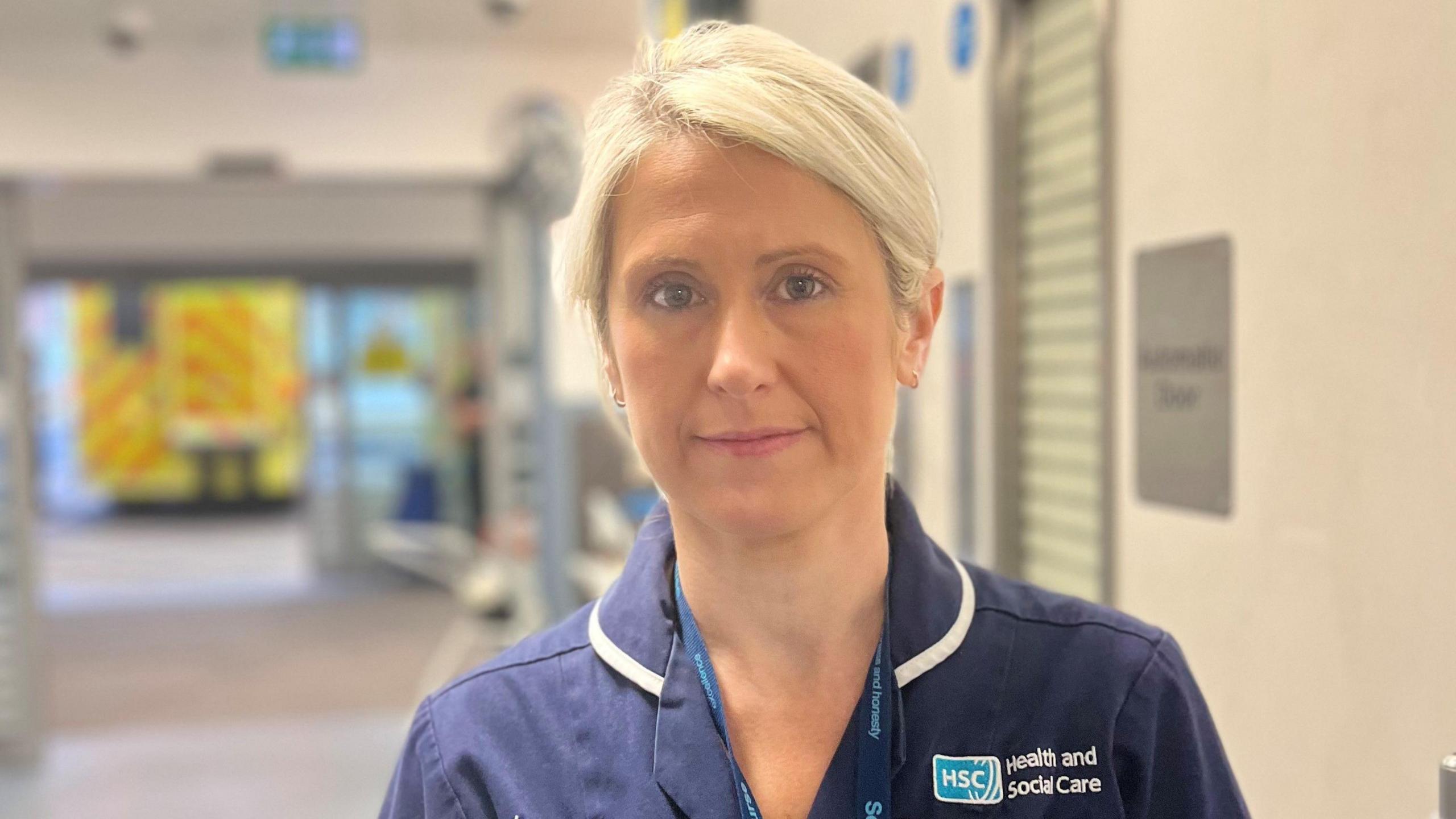
- Published2 January
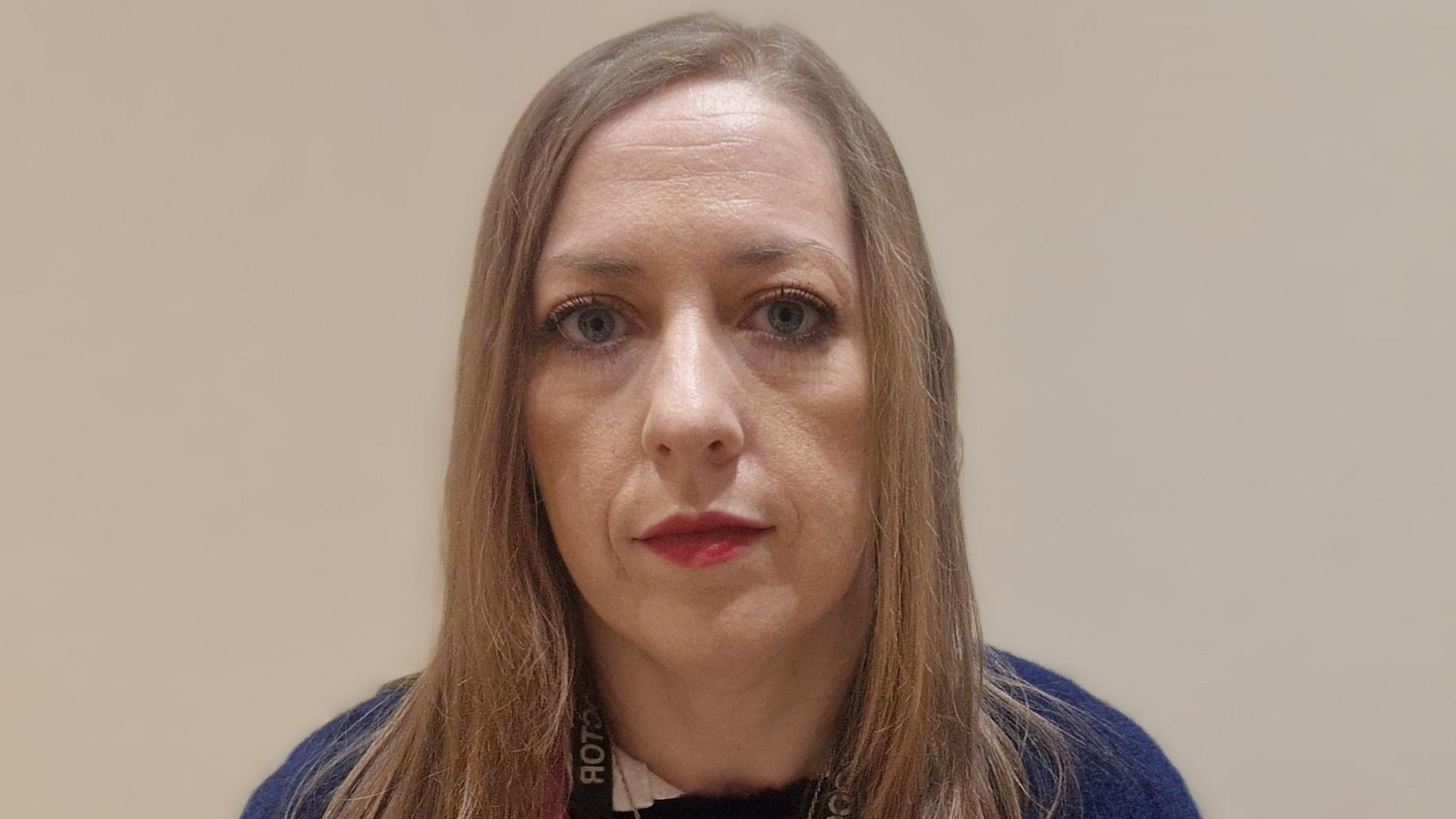
- Published10 January
